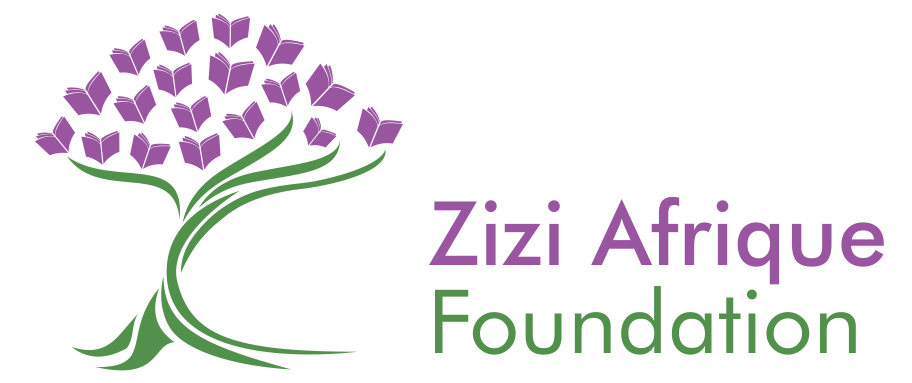By John Mugo and Samuel Otieno
Zizi Afrique Foundation has existed as an independent organization since August 2018. The initial years sought to establish the foundations for impact-at-scale, exploring mainly the prospects for competency-building in areas of foundational literacy and numeracy (early transition) and technical and vocational training (late transition). In late 2019, the development of a strategic plan commenced. However, this process stalled with the pronouncement of COVID-19 in early 2020, and the organization moved to survival mode, adapting rapidly to respond to the crisis of learning over the emergency period.
The strategy development process got back on course by October 2020, and the inaugural 5-year strategy launched in October 2021. Four things defined the focus of the organization: competences for learning, working and living, system change, focus on the children and youth furthest behind, and impact through collaboration and community building. With this direction, the organization has sustained steady growth, from working in only a few counties in Kenya in 2020, to driving collaborative system-change work in three countries. From just three programs in 2020, to 9 programs in 2023.
The year 2023 marked the midpoint for the strategic period journey. The board commissioned a midline evaluation in May, and the process concluded by September 2023. This review has concluded that the organization is generally on track to achieving the strategic targets for 2025, across all three strategic pillars. Overall, Zizi successfully navigated a challenging inception phase during and post COVID-19 that radically altered education in the country amidst curriculum reforms and change of Government in 2022.
Changes in external landscape and effect on Zizi’s work
First is the roll out of the new education system and curriculum. The implementation of the Competency-Based Curriculum (CBC) has gone full circle in early years, and reached Junior Secondary in 2023. This has shifted the focus of government, as experiences and challenges shape government investments, and as curriculum and assessment evolve.
Accelerated by the COVID-19 learning disruptions, technology has gained prominence as a tool to facilitate access to learning, and for improving teaching and learning outcomes. The landscape has many more actors now focusing on Edtech than it was the case in 2021. The new (Kenya Kwanza) government elected in the 2022 general elections brought in new twists to the landscape. Alongside new leaders in the education sector, the Presidential Working Party on Education Reforms (PWPER) established in September 2022 presented a report to the President proposing priorities for education over the 2022-2027 period, and largely adopting the manifesto of the ruling party. This agenda has implication on Zizi’s advocacy.
The CBC curriculum has yielded changes to the teacher education curriculum, whose implementation kicked off in 2022, in earnest. Together with the teacher education policy now under development, the changes have opened new opportunities in teacher education, with the Ministry opening doors for innovation to produce a new generation of teachers through pre-service teacher training. Further to this, financing public education in Kenya has gained prominence as an area of interest, driven by the financial crisis that has faced and almost collapsed University education. The President has flagged off a New Funding Model (NFM) for the different levels of education, opening new doors for evidence generation and advocacy on equity and accountability in education financing.
Technical and Vocational Education and Training (TVET) has emerged as an area of focus for the new government, with few institutional changes that have included the reinstallation of the TVET Curriculum Development and Accreditation Council (CDACC) and establishment of the Kenya School of TVET, among other key reforms. This validates Zizi’s focus on this sub-sector, but also opens new challenges for evidence supply and advocacy.
Global education funding continues to shift to African organizations, through the so-called localization movement. This raises the quality bar for Zizi Afrique, to demonstrate authority, credibility and capacity as an indigenous organization, with greater prospects for unrestricted funding.
As an organization, Zizi has grown significantly since 2021, with major expansions in funding sizes, programmatic and operational scope, as well as leadership and staffing capacities. Given these changes, the evaluation arrived at three conclusions. First, Zizi’s mission remains relevant to both the achievement of the vision and the social-political context. The organization is well positioned to ride on the increased attention in the education and youth sectors in the East Africa region to equip children and youth with competences. However, three implications emerge from the changes in context. Second, there is a need to align areas of work to the contextual realities, especially in regard to the new government and changes in the political economy. Third, the new government may require re-examination of Zizi’s engagement approach, while facing it straight with an ever-closing civic space and working with schools.
Action points for 2023-2025
The findings of the midline review exercise have yielded to 10 action points for the remaining period of the strategy.
Retain Zizi’s Vision, but sharpen the mission. The organization shall focus more on foundational skills, referring to literacy and numeracy, but also other foundational, holistic development skills and values that children and young people need. The mission of Zizi Afrique will be summarized as
Consolidate-Innovate-Engage.
Breath life into organizational values. Strike balance between process (how to) and the impact (what), with values serving as the bond between these two components. Intensify focus on embracing inclusion and diversity and establish clear mechanism of living the organizational values.
Deepen work around strategic levers of Zizi’s mission. Achieve better and deeper evidence consolidation, illuminate sustainable and scalable innovations, and go for better-purposed engagement, through a pipeline (as opposed to segmented) approach to the education system.
Be more strategic in advocacy, intensify engagement. Re-focus to establish a continuum that embraces co-creation with all stakeholders and sustain use of evidence as Zizi’s signature contribution to the crowded space.10
Retain the Zizi brand, and leverage partnerships for visibility. Develop one overarching, human-touch story, which becomes what Zizi is known for, then let other stories always come under this, to achieve consistency. Leverage existing and prospective collaborations and partnerships to tell the impact story more aptly, distinctly and consistently.
Embrace and Embed Gender, Equity and Inclusion. Embed a holistic gendered approach to programming. Beyond just data disaggregation, embrace the GEI principles right from the office to the priorities that are set, the way implementation is organized and up to reporting.
Scale the Posture and Positioning of Zizi as an African organization. Sustain the Afrocentric/Pan African posture and seek out partnerships that embolden African organizations. Create larger alliances and collaborations across Africa, through peer-to-peer reviews/learnings/ exchanges.
Manage succession and flatten the power structure. Continue with efforts to de-personalize the brand of Zizi from the Executive Director, to achieve greater devolution and a more horizontal power structure. Facilitate greater capacities and visibility of the next leadership layer, as well as an intergenerational approach to staff mentorship for growth at all levels.
Upgrade the MEL Plan and Capacity. Review and upgrade the MEL framework to ensure that reporting is fully aligned to the strategy. Expanded capacities to capture data, and platforms that enable real-time reporting data generation and sharing.
Embrace a growth ambition and face fundraising with greater courage. Achieve full documentation of approaches/innovations and use these to review the fundraising document and stories of impact. Approach growth with increased courage, not hold back where opportunities are available, and revise upwards the fundraising and growth ambitions.
Overall, the organization approaches the year 2024 with great optimism, targeting growth and expansion to the region, hope to establish impact collaborations in more countries in Sub-Sahara Africa, including Malawi and Cameroon. The organization will narrow focus to fewer areas of change in policy and practice to achieve impact for millions of children.


